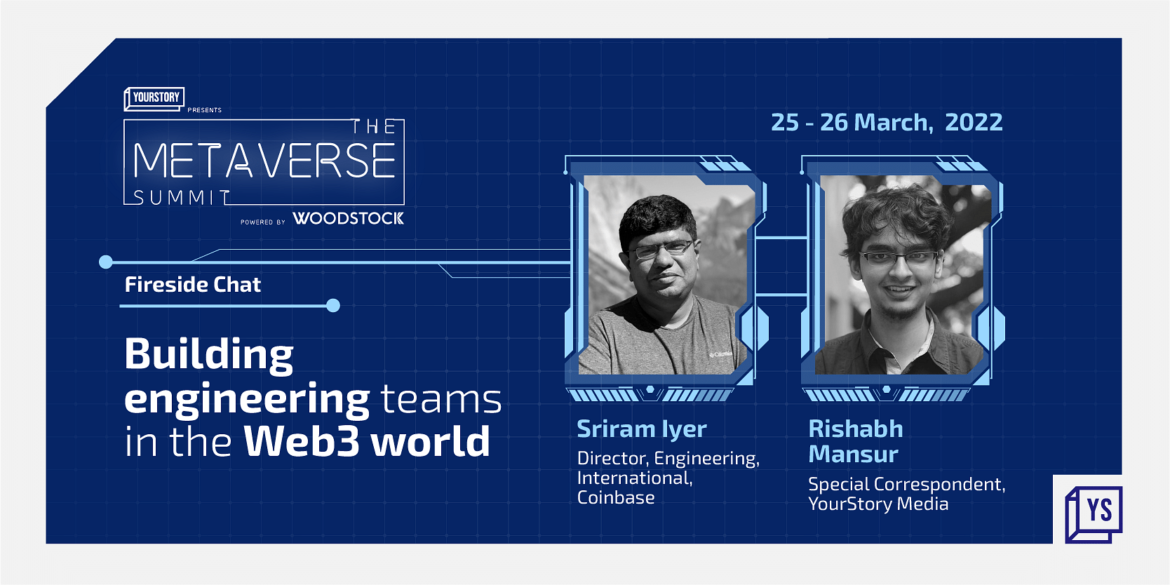The future of work is an ongoing debate in the post-pandemic world. From enabling a hybrid work culture, to building remote teams, tapping global talent pools, and more, organisations worldwide are engaging in agenda-setting conversations.
On day 1 of The Metaverse Summit 2022, Sriram Iyer, Director of Engineering International at Coinbase, offered critical insights into the merits and challenges of building a completely remote team for a global crypto startup.
“We have very unique cultural tenets and the way we build and execute really helps us stand out,” said Sriram in conversation with Rishabh Mansur, Special Correspondent, YourStory.
Pros and cons of being remote
Sriram reminisced how during COVID-19, he was actually expecting to see a huge drop in productivity. On the contrary, he found that they were, in fact, doing better, and with the right constructs, remote working could be a great way to work.
He emphasised the fact that being remote has given Coinbase the liberty to tap talent anywhere in the world. However, there are side-effects too. Unlike the traditional decision-making framework with people gathering in a boardroom, there needs to be extensive documentation and complete synchronisation in the decision-making process.
“The third side-effect of remote is that we are always working like the sun never sets at Coinbase. So, these are some of the reasons why we are able to build products at such a fast pace,” he added.
Measuring productivity for remote team
According to Sriram, a very simple way of measuring productivity from the business perspective is to analyse the business metrics or the product release velocity.
“Work from home is a privilege and gives the ability to be flexible with your time. But at the same time, it’s very hard. A lot of sacrifices are being made, for instance, if it’s a small house and there are kids and both the husband and the wife are working, where do they sit and where do they work? So we’re deeply sensitive about that. But given the other things on a macro scale, I think remote is definitely the way to go,” he added.
The DAO phenomenon
A new phenomenon, DAOs or decentralised autonomous organisations is a way to decentralise decision-making. “It doesn’t solve more problems than that, in my opinion,” he added.
“This is a very new field that is evolving. So, I think while the heart is in the right place, it’s too early to judge at this point in time. I wouldn’t say DAOs are the future. What I would say is that it may not be the future in the way it is set up right now but I think with the right tooling for DAOs, I see them as being a very effective way of doing something collaboratively. However, I don’t think it will replace organisations and leadership and central decision-making as a whole,” he added.
Way ahead for crypto leaders
Sriram highlighted that Web3.0 is a completely decentralised world. Some of the skills are definitely transferable while some of the cryptographic skills have been around forever.
“In terms of leadership, I think people who generally come from the regular Web2.0 world are not very conversant with the tokenised Web3.0 world. So, we need to look at Web3.0 as a completely new world with a lot of learning and assimilation of inputs from markets, and more. But definitely, we are at an early stage and a lot of mindset change is required,” he signed off.
To join The Metaverse Summit login here or visit the website.
(Edited by Sanhati Banerjee)

